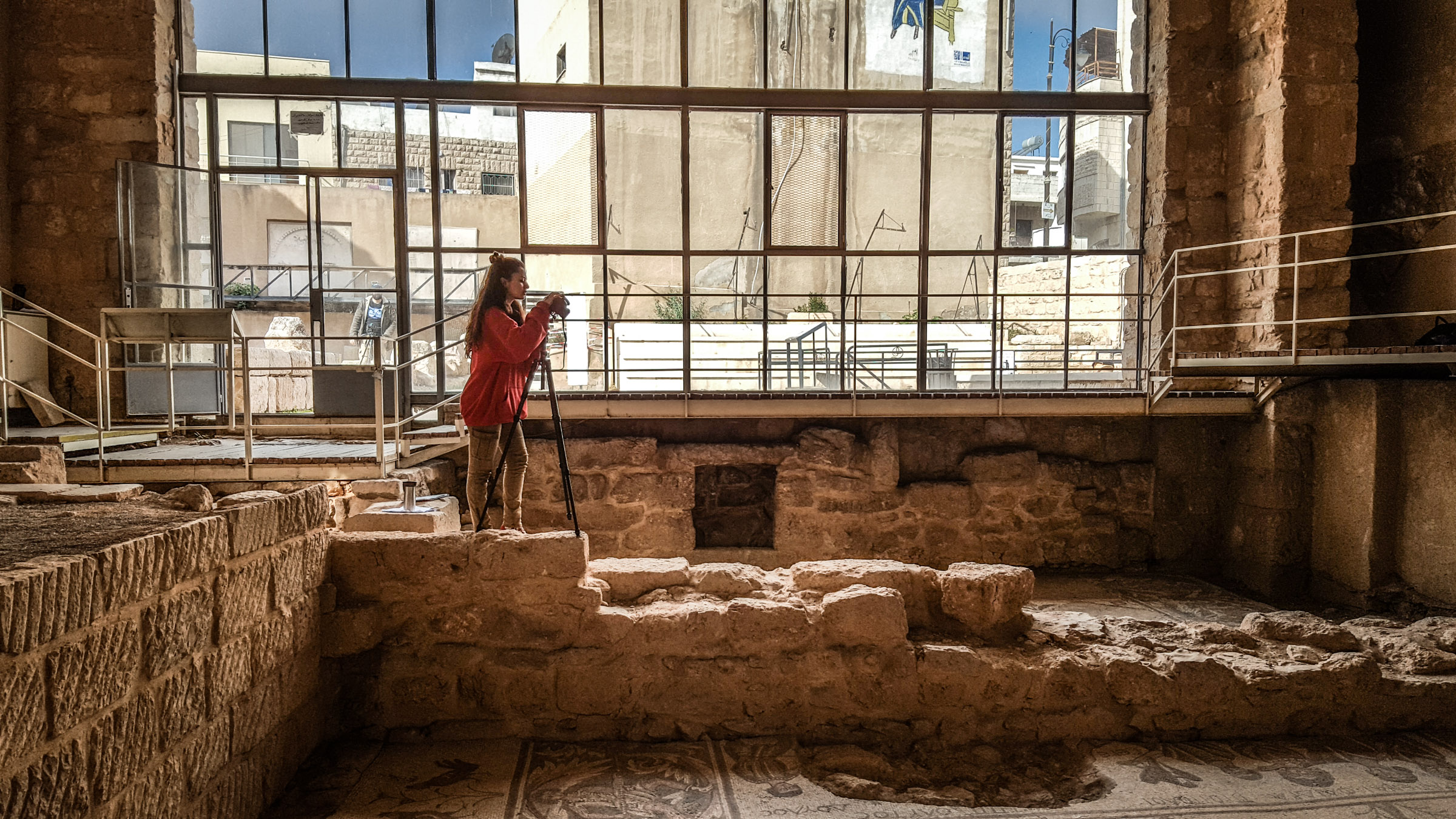An inventory and storage upgrade project supported by the State Department at the Madaba Regional Archaeological Museum was put on hold in 2020 because of the COVID-19 pandemic. Museum staff and partners from the Jordanian Ministry of Tourism and Antiquities, Gannon University, and La Sierra University could no longer access the collection as the city closed. The local community that depended on tourism revenue for their livelihoods were adversely affected by the global freeze on travel. In response, the project partners pioneered an innovative initiative of training, professional development, and virtual tours of the heritage trail in downtown Madaba that brings to light the many stories of people who call this ancient place and its living heritage home.
jude_twal_from_aum_completes_photogrammetry_of_the_hippolytus_hall.jpg
 Jude Twal from the American University of Madaba completes photogrammetry of the Hippolytus Hall
Jude Twal from the American University of Madaba completes photogrammetry of the Hippolytus Hall
hippolytus_hall_and_virgin_mary_church.jpg
 Hippolytus Hall and Virgin Mary Church
Hippolytus Hall and Virgin Mary Church
About the Ambassadors Fund for Cultural Preservation
The Ambassadors Fund for Cultural Preservation (AFCP), created in 2001 at the direction of Congress, supports projects to preserve a wide range of cultural heritage in less developed countries, including historic buildings, archaeological sites, ethnographic objects, paintings, manuscripts, and indigenous languages and other forms of traditional cultural expression. Since its creation, AFCP has supported more than 1,000 cultural heritage projects around the world.
About the Cultural Antiquities Task Force
Created by the State Department in 2004 at the direction of Congress, the Cultural Antiquities Task Force (CATF) comprises federal agencies that share a common mission to combat antiquities trafficking in the United States and abroad. Since its creation, the CATF has supported more than 95 domestic and international cultural property training programs.



